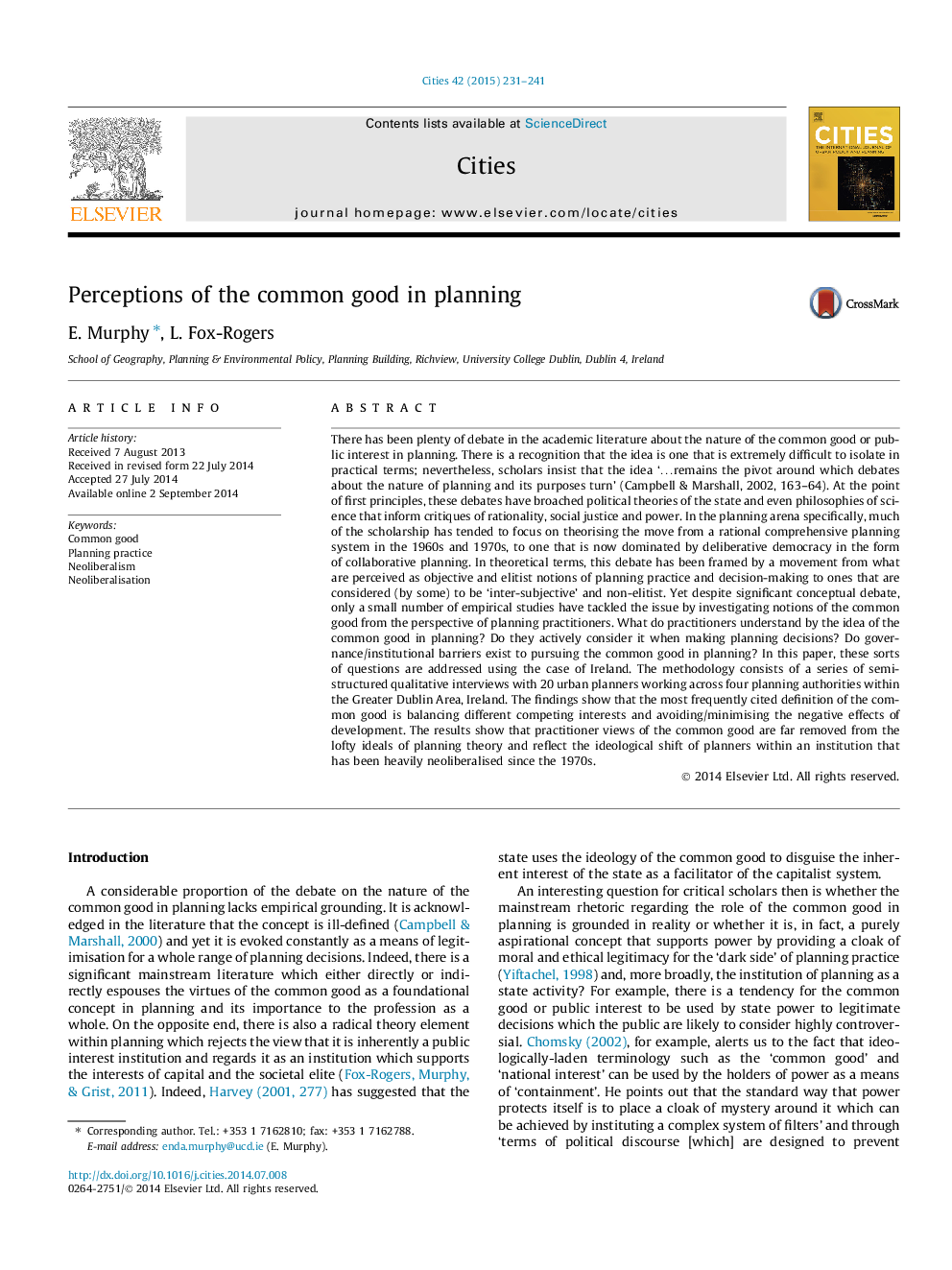| کد مقاله | کد نشریه | سال انتشار | مقاله انگلیسی | نسخه تمام متن |
|---|---|---|---|---|
| 1008293 | 938563 | 2015 | 11 صفحه PDF | دانلود رایگان |
• We investigate planners’ self-perceptions of the common good in planning.
• We explore whether the common good is a ‘norm for practice’.
• The results show an ideological shift in perceptions of the common good.
• The common good can be aligned, inter alia, with collaborative planning principles.
There has been plenty of debate in the academic literature about the nature of the common good or public interest in planning. There is a recognition that the idea is one that is extremely difficult to isolate in practical terms; nevertheless, scholars insist that the idea ‘…remains the pivot around which debates about the nature of planning and its purposes turn’ (Campbell & Marshall, 2002, 163–64). At the point of first principles, these debates have broached political theories of the state and even philosophies of science that inform critiques of rationality, social justice and power. In the planning arena specifically, much of the scholarship has tended to focus on theorising the move from a rational comprehensive planning system in the 1960s and 1970s, to one that is now dominated by deliberative democracy in the form of collaborative planning. In theoretical terms, this debate has been framed by a movement from what are perceived as objective and elitist notions of planning practice and decision-making to ones that are considered (by some) to be ‘inter-subjective’ and non-elitist. Yet despite significant conceptual debate, only a small number of empirical studies have tackled the issue by investigating notions of the common good from the perspective of planning practitioners. What do practitioners understand by the idea of the common good in planning? Do they actively consider it when making planning decisions? Do governance/institutional barriers exist to pursuing the common good in planning? In this paper, these sorts of questions are addressed using the case of Ireland. The methodology consists of a series of semi-structured qualitative interviews with 20 urban planners working across four planning authorities within the Greater Dublin Area, Ireland. The findings show that the most frequently cited definition of the common good is balancing different competing interests and avoiding/minimising the negative effects of development. The results show that practitioner views of the common good are far removed from the lofty ideals of planning theory and reflect the ideological shift of planners within an institution that has been heavily neoliberalised since the 1970s.
Journal: Cities - Volume 42, Part B, February 2015, Pages 231–241
